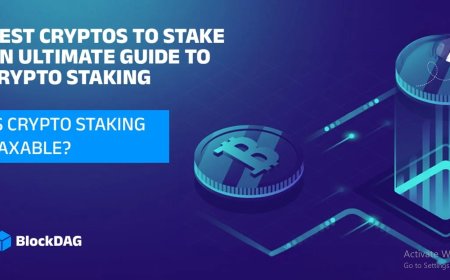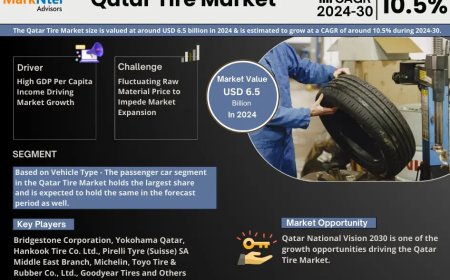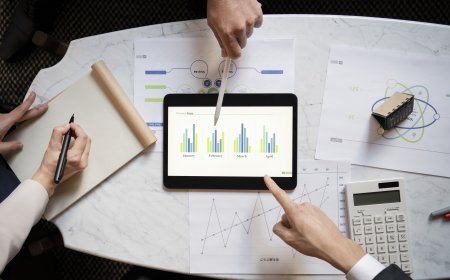Data Science Beyond 2025- Future Exposed
Discover the future of data science beyond 2025. Find the best trends, forecasts, information, and components of data science revolutionizing the tech world.

Data science is changing rapidly moving forward, and the innovation in the use of AI, big data, and automation is behind this movement. In 2025, it is projected that the global data creation will be 200 zettabytes compared to 120 zettabytes in 2023. Due to such exponential growth, the demand for qualified data scientists is on the rise. The McKinsey report also points out that 92% of organizations intend to significantly increase investment in data skills by 2025. In this blog, we discuss the characteristic trends, forecasts, and emerging components of the data science landscape ahead of the year 2026 and the way professionals can position themselves for this change.
The Growth of AI in Data Science
Artificial intelligence is not a subdivision of data science; it is becoming its spine. In 2025, AI models will be used to target additional end-to-end data approaches, which encompass real-time decision-making, predictive analytics, and self-sufficient data cleaning. These smart systems will minimize human error, maximize scaling, and render real-time insights the norm.
Human-AI Collaboration takes center stage
Instead of transforming the data scientists, the AI tools are also acting like co-pilots. Tools like AutoML and generative AI are allowing professionals to concentrate more on strategic thinking and less on coding grunt work. The future of data science lies in augmenting human expertise with effective AI engines for superior productivity and precision.
Components of Data Science
Despite the converting landscape, the component of data science remains grounded in 5 key areas:
- Data Collection and Preparation
- Statistical Analysis
- Machine Learning
- Data Visualization
- Communication and Storytelling
Among these, data visualization and storytelling are gaining heightened significance. In an era of overwhelming data, simplifying complex insights into digestible narratives is becoming a surprisingly valued talent.
The Rise of Real-Time Insights
As the extent and pace of the data boom, companies demand faster insights. Real-time analytics structures powered through cloud-local architectures are rising as a game changer. Whether its fraud detection in finance or affected person tracking in healthcarereal-time choices could be essential.
Edge Computing Joins the Party
Edge analytics is making waves by way of processing data at its source, lowering latency, and improving performance. For example, in IoT-driven industries, edge computing allows for instant analysis and actions without sending data again to centralized servers.
Data Visualization: The Bridge Between Data and Decisions
Data visualization is not just about chartsit is about expertise in the datas story. Tools like Tableau, Power BI, and more recent AI-powered systems are simplifying the manner in which professionals gift data. The visible literacy of a data scientist is now considered as crucial as their analytical talents.
Rise of Interactive and AI-Generated Visuals
AI is likewise enhancing the way visualizations are created. 2025 is already witnessing a shift closer to dynamic dashboards that adapt in real time based on user entry or external data modifications. This makes it less complicated for stakeholders to explore data on their own.
The Integration of Data Science and Business Strategy
Data science has ceased to be a technical role; and has become part of the core business strategy. Innovative organizations are integrating data science teams directly into their strategic planning departments. Such teams do not merely assist in the decision-making process; they are the core of it as they help find new growth opportunities, anticipate market changes, and streamline operations in real-time.
Emerging Roles and Career Pathways
The conventional position of a data scientist is fragmenting into more specific roles:
? Data Engineer: Focused on infrastructure
? ML Engineer: Specializing in machine learning models
? Data Storyteller: Bridging the gap among data and decision-makers
? AI Ethicist: Ensuring accountable and truthful use of algorithms
This evolution indicates that the future of data science isn't monolithicits an ecosystem of roles requiring specialized skill sets.
Upskilling Through Recognized Data Science Programs
Staying competitive in the future means continuously upgrading your capabilities. Programs such as Stanfords Machine Learning Specialization, Georgia Techs Online Master of Science in Analytics, and Cornells Certificate in Data Science offer sturdy learning courses for professionals seeking to stay modern.
Additionally, the United States Data Science Institute (USDSI) provides globally recognized data science certifications- Certified Senior Data Scientist (CSDS) and Certified Lead Data Scientist (CLDS) to lead in the evolving data science industry. These certifications are designed to align with the fast-changing global requirements of data science and are curated and vetted by over 30+ worldwide data technology experts.
Prediction Round-Up: The Defining Moment For 2026
- Guided data wrangling will become a thing of the past with hyper-automation.
- Explainable AI (XAI) may become a criminal and ethical necessity in such areas as healthcare and finance.
- Quantum computing can also start to play out in large-scale data simulations.
- Data teams are cross-functional and make the boundaries between IT and enterprise indistinguishable.
- There will be more global data regulations, and data experts will have to be well-versed in these compliance frameworks.
These trends are proof the data science industry is not going to slow down any time soon. The years to follow are sure to be a witness to an astounding playground for masisvely enhanced data science skills and strategies. Time to prep is now!
Conclusion: Preparation for the Future of Data Science
The future of data science is dynamic, multidisciplinary, and full of opportunities. With technology like AI, real-time analytics, and superior data visualization, the enterprise is set to convert how businesses perform and innovate. Success in this area will demand not only simple technical knowledge but also the capacity to adapt, communicate, and suppose critically. For data experts, staying data-driven means continuously learning and embracing trade and getting to know the evolving components of data science.







































